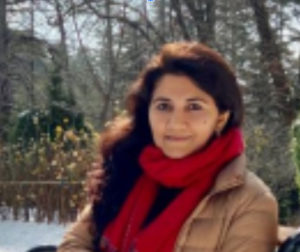M. Scott Peck explains in his book ‘The Road Less Travelled’, and I paraphrase, that we all create maps to navigate through life, right from our childhood. It is only through constantly reviewing the reality and our place in it that we can keep updating these maps. The more true and accurate these maps, the better our chance to know where we are going and how to get there.
Last year, in the midst of covid-enforced virtual schooling, we decided to change our children’s school. It was a tough decision to make, to uproot everyone, and I faced many moments of doubt. After all, the school we are leaving is one of the best in the city, and our lovely little home is in one of the best residential areas. Yet, something had been gnawing at me. This new school is quite a distance away from our current home. Now, with the impending opening of schools, we have to leave our home of eleven years and move closer to the new school. Life was perfectly settled here, so why was I not content with it?
I had worked very hard to get my son, and then daughter, admitted to their old school because I completely identified with its value system. I got associated with the school community and participated in various ways for nearly a decade. In fact, I think of their schooling years there as my years of unlearning and relearning. Their school shaped my life and me as much it shaped the children, if not more. However, I had been feeling that the school was not working for them anymore. It was my attachment to the value system, and to the community, that kept us there and made it very hard to leave. The thought of leaving made me feel like all the years I had put in were for nothing. Despite doing thorough research around the new school, many doubts and fears came to mind. Would the children ever belong to any place like they did here? Would they find good company? Would they resent me for taking them away from everyone they knew? Was it the right decision to make for the family’s financial health? Would the culture of the new school affect the kids adversely? Would the culture of the new residential arrangement affect us all adversely? The voice of doubt is hard to put down, and the comfort of the familiar is so tempting.
On the other hand was the voice of my gut that told me it was time to move on. It told me that we weren’t leaving our old school behind but instead carrying its teachings with us. The learning belongs to us, which means that we will continue to belong to that school and community. After all, it was the time spent there that opened our minds, prepared us for new possibilities and propelled us forward.
Peck also writes that changing and adjusting our life map is a painful process but it is ultimately in our self-interest. This move for us comes as a result of a revision of our map. It is difficult and uncomfortable, like all changes are, but it is also based on the reality of our world. We have to accept it and move on.
 |
Bhavna Dewan Bhatia, A mother and yoga practitioner, lover of books and seeker of silence & solitude |


